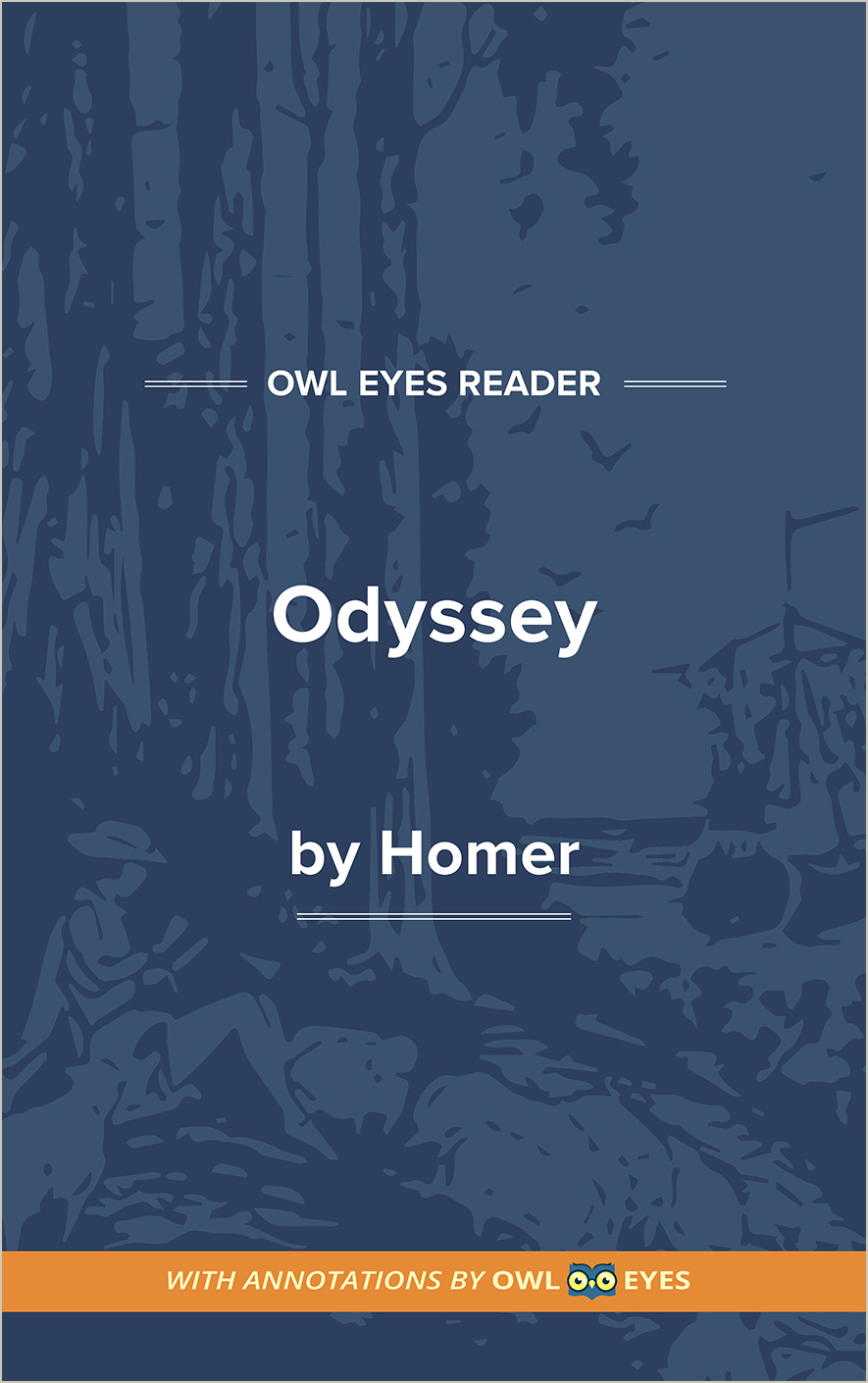Analysis Pages
Irony in The Odyssey
Dramatic irony is used throughout the story to build tension and suspense for the listening audience. Because the narrator invokes a muse at the beginning of the tale, he, and by extension his audience, are given privileged sight of Odysseus’s tale. For this reason, the audience often knows things that the characters in the story cannot, creating the dramatic irony and providing tension for the story.
Irony Examples in The Odyssey:
Book III
🔒"I can expect nothing of the kind..." See in text (Book III)
"praying heartily to Poseidon..." See in text (Book III)
Book V
🔒"I am going to send you away of my own free will..." See in text (Book V)
Book XII
🔒"Poseidon himself could not save you..." See in text (Book XII)
Book XIII
🔒"may I find my admirable wife living in peace among friends..." See in text (Book XIII)
"I saw no more of you..." See in text (Book XIII)
Book XIV
🔒"for I was not given to bragging..." See in text (Book XIV)
Book XV
🔒"and their hair always tidy..." See in text (Book XV)
Book XVI
🔒"we had made sure that it would come to nothing..." See in text (Book XVI)
Book XVII
🔒"like a man..." See in text (Book XVII)
Book XVIII
🔒"married the best man..." See in text (Book XVIII)
"of the same mind as I am..." See in text (Book XVIII)
"Irus..." See in text (Book XVIII)
Book XIX
🔒"Bring a seat with a fleece upon it, for the stranger to sit upon while he tells his story..." See in text (Book XIX)
Book XXI
🔒"yet I am laughing and enjoying myself as though there were nothing happening..." See in text (Book XXI)

